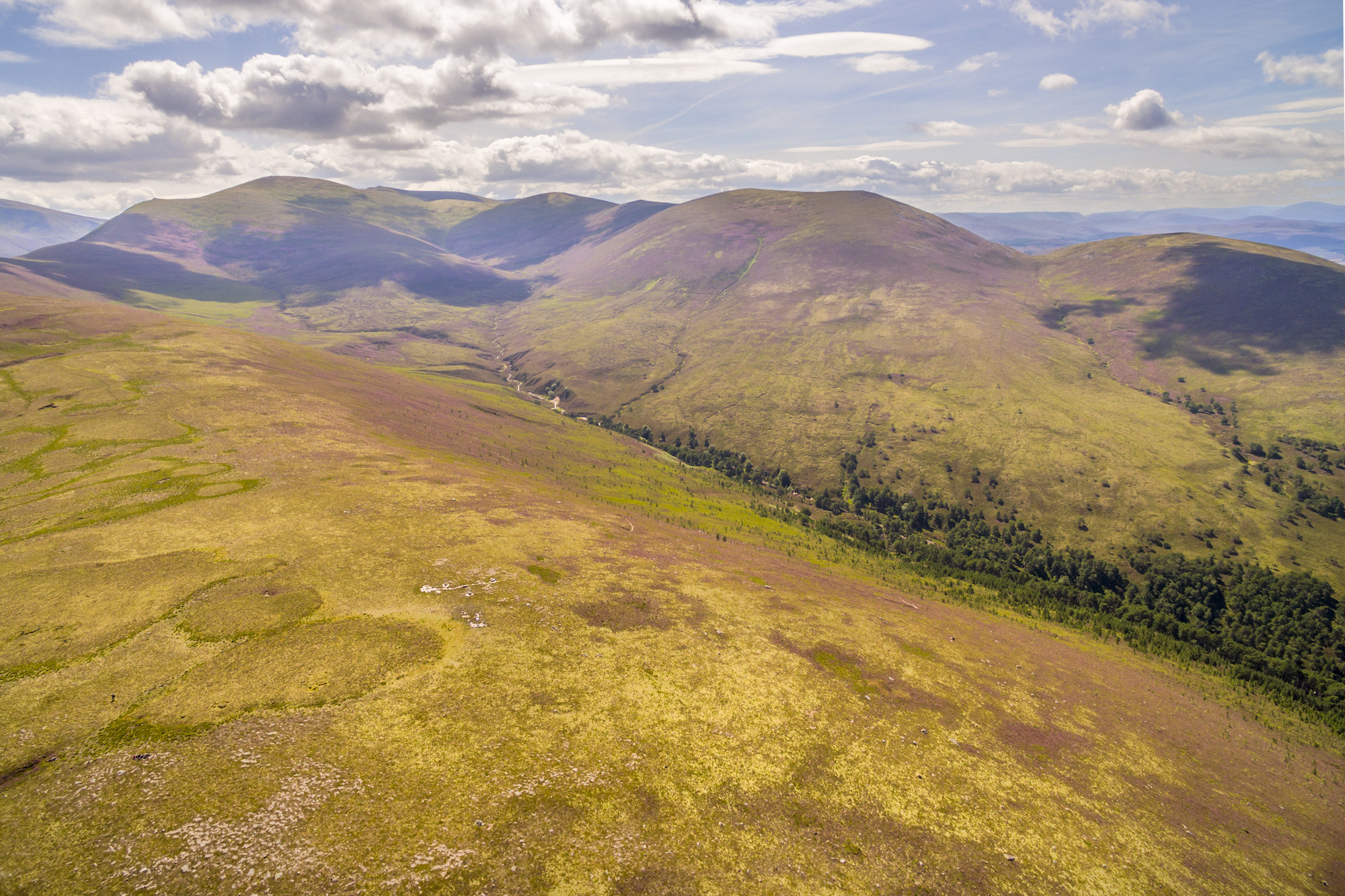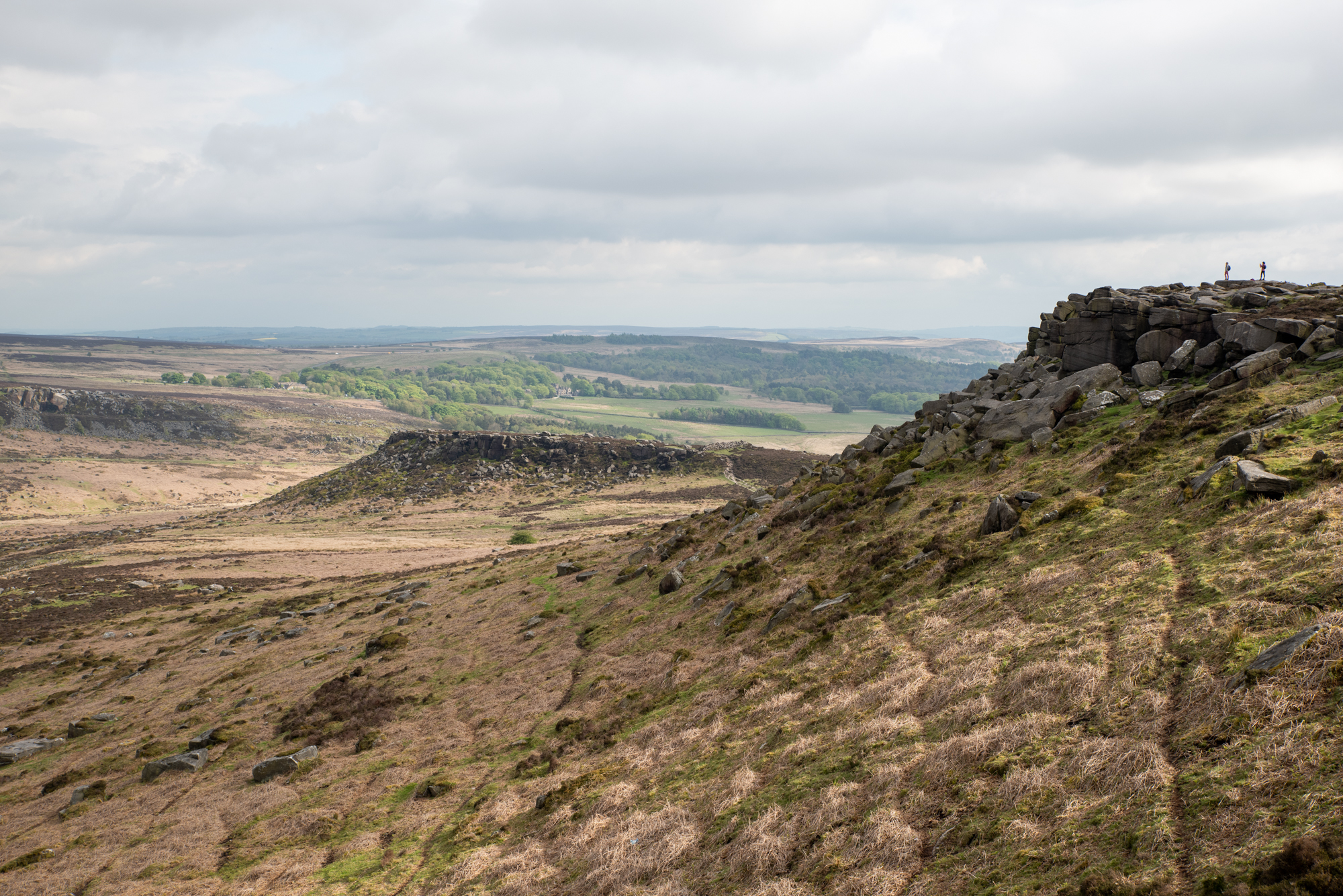Government urged to create wilder national parks to tackle nature and climate crises
PM’s pledge to protect 30% of Britain for nature not credible without action
Government action is needed to make Britain’s national parks much wilder and fit for purpose to tackle the nature and climate crises, says Rewilding Britain as it launches a new campaign.
Rewilding Britain says nature is badly depleted in the parks – with protected sites often in a worse condition than elsewhere, key species missing or declining, and decades-old laws hampering National Park Authorities’ ability to protect nature.
The charity says the UK Government and devolved administrations should create core rewilding areas on public land across 10% of the national parks. They should also modernise legislation to empower the parks to significantly expand their efforts to tackle biodiversity loss and climate breakdown.
“Wilder national parks could lead the way for a healthier, more nature-rich Britain, with opportunities for communities and local economies,” said Guy Shrubsole, Rewilding Britain’s Policy and Campaigns Coordinator.
“Nature would be in an even worse state were it not for the parks, but we’re being outpaced by the nature and climate crises. Despite some superb initiatives, the parks’ ability to upscale nature’s recovery and lead the way is being hobbled by decades-old laws dating as far back as the 1940s. It’s time for change. Without wilder national parks, the Prime Minister’s pledge to protect 30% of Britain for nature by 2030 is just not credible.”
The independent Glover Review into England’s national parks reported to the Government in 2019, and recommended setting up Wilder Areas – but Ministers have yet to act. The Scottish and Welsh governments are yet to set up similar reviews.
The UK has been ranked 189thout of 218 countries for its quality of nature, with some 56% species in decline and 15% threatened with extinction. Rewilding Britain says rewilding – the large-scale restoration of nature to the point it can take care of itself – could reverse the country’s collapse in biodiversity.
In England’s national parks, three-quarters of Sites of Special Scientific Interest are in a poor condition and often in a worse state than elsewhere, according to RSPB research. They also have average woodland cover of just 15%. A Friends of the Earth study showed there is less woodland cover in the Yorkshire Dales than London, less in the Peak District than Leeds, and less in the Lake District than Sheffield.
Ensuring wilder national parks is achievable, and the Government can create rewilding areas across 10% of the parks regardless of action by private landowners, according to land ownership mapping carried out by Rewilding Britain. Public bodies – with water firms, which are legally obliged to help the parks meet their purpose – own 738,000 acres or 13% of the total 5.7m acres covered by Britain’s 15 national parks.
The charity says the Government should also introduce fresh legislation to modernise key Acts of Parliament, dating as far back as 1949, which cover the national parks. As planning authorities, the parks can restrict built development but have very few powers to restore and protect nature.
Exmoor National Park Authority plans to restore natural processes over 10% of the park but may struggle to do so without other public bodies being obliged to support them. Brecon Beacons National Park Authority has been consulting on its next Management Plan, with encouraging proposals for nature recovery.
Rewilding 10% of the parks would see peatlands, moorlands, woods, rivers and seas restored, with no loss of productive farmland. Another 50% of the parks should consist of nature recovery areas with a mix of habitats, wildlife corridors and land uses, with Government financial support for nature-friendly agriculture.
Allowing native trees to naturally regenerate, and restoring peatlands damaged by drainage and moorland burning, would boost biodiversity, absorb carbon dioxide, reduce flooding and improve water quality. Missing species such as beavers, pine martens and white-tailed eagles should be reintroduced when habitat is available and in consultation with local people. Conservation grazing by native livestock would help overgrazed meadows and heaths revive.
Rewilding Britain’s research has shown a fifth of Britain’s species could be saved from decline or extinction by increasing the scale, quality and connectedness of habitats nationwide. It has also shown how rewilding can bring new opportunities for people, including jobs and volunteering opportunities, and how nature restoration on marginal land can work well alongside generating income from food production and livestock.
The public already wants wilder national parks. The top response from residents and visitors to a Campaign for National Parks survey in 2016 for improving the parks was ‘better conservation of wildlife’, closely followed by ‘make them wilder’.
Increasing numbers of landowners are rewilding areas of the parks. Members of Rewilding Britain’s Rewilding Network include Wild Haweswater and Wild Ennerdale in the Lake District, Ingleborough National Nature Reserve in the Yorkshire Dales, and Creag Meagaidh and Mar Lodge in the Cairngorms.
Rewilding Britain has launched a public petition calling on the Prime Minister and the First Ministers of Scotland and Wales to create wilder national parks this year. This comes as the G7 nations meet this week and are expected to reaffirm their commitment to protect 30% of land and sea for nature by 2030, and with the UK to host the United Nations Climate Change Conference (COP26) in Glasgow in November. See rewildingbritain.org.uk.
Ends
Press release distributed by Pressat on behalf of Rewilding Britain, on Tuesday 8 June, 2021. For more information subscribe and follow https://pressat.co.uk/
Biodiversity Nature Wildlife National Parks Rewilding Environment Charities & non-profits Environment & Nature
You just read:
Government urged to create wilder national parks to tackle nature and climate crises
News from this source:



